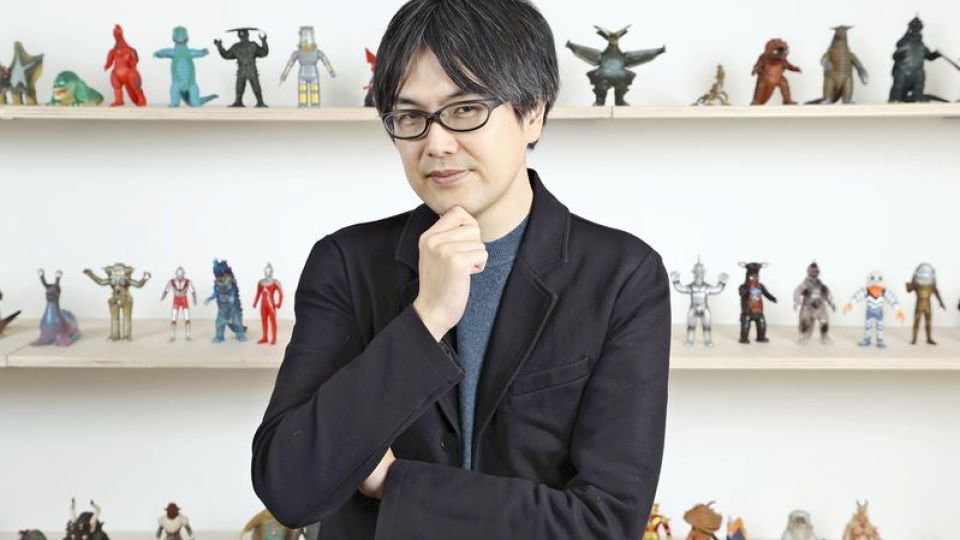March 18, 2022
TOKYO – Last autumn, critic Tsunehiro Uno started Mononome, a comprehensive print magazine that is not available on major e-commerce sites such as Amazon.com. Its slogan “Unreachable by search engines” prompted me to ask Uno why being disconnected is so important.
Uno, 43, who writes articles for digital media and publishes an email newsletter, decided to create a print magazine because he was deeply concerned about the way the internet is being used these days.
“You give knee-jerk reactions to news stories on your social media timeline and to what everyone is talking about, and you’re satisfied with commenting on and tweeting about them,” Uno said. “Using the internet in such a way is becoming too rampant; it makes you stop thinking. I thought we have to regain the power to think at our own pace, with our own sense of distance and angle of approach. To do that, we must think in a place where we have no connection [to the internet]. Otherwise, we can’t find the most precious things.”

The cover of the second issue of Mononome to be published soon
Courtesy of PLANETS
He also hopes that readers of the magazine will come across topics they were not interested in before while turning its pages.
“Recommendation systems on the internet offer you information on things you are likely to be interested in. In my case, it’s anime programs from the 1980s featuring robots or tokusatsu superheroes from the 1970s,” Uno said. “Online recommendation systems provide you with information that further deepens your knowledge about what you already like, but their weakness is they can’t make recommendations that may expand your realm of interests. They may improve in the future, but I think encountering things by chance is one of the few areas in which nondigital entities such as Mononome still have an edge.”
Prior to the magazine’s publication, Uno sought financial support through crowdfunding. He received ¥7.58 million from 1,129 people who shared his sentiments, far exceeding his expectations. The first issue of Mononome was published in September last year, with a print run of 5,000 copies. It features “cities” as its theme and contains a travel story and opinions on novels, accompanied by many photos. The publication, which comprises some 320 pages, is by no means cheap, selling at ¥3,080, including tax.
Turning your back on the low-cost, world-connecting internet and eschewing a major platform like Amazon.com is not an easy path to take when trying to sell a magazine. However, bookstores, cafes and movie theaters in 40 locations across the country have agreed to sell the magazine. And, apparently, many of the readers belong to a younger generation than Uno’s.
“There aren’t many advertisements either, so it’s tough,” Uno said. “But some bookstore staff who understand the spirit of Mononome treat it very carefully. I’m really grateful to them.”
The articles in Mononome are relatively long, especially in a time and age when shorter texts abound. Readers may only casually read an article unless they have ample time on their hands.
“That’s the kind of thing I wanted to make, something that’s different from online articles, which you can finish reading in a few minutes while on a train. I hope readers will read the magazine when they don’t want to see anyone and are ready to shut themselves in for the day,” he said.
The biannual magazine’s second issue will be published soon with “body” as its theme. Uno has once again received financial support through crowdfunding, from 912 people this time. It seems there are quite a few people who think this print-based endeavor, which goes against the times in many ways, is necessary.
For inquiries to buy Mononome magazine, email info@wakusei2nd.com.
Magazines’ slow, steady decline
According to the Research Institute for Publications of the All Japan Magazine and Book Publisher’s and Editor’s Association, the annual sales turnover of print magazines peaked at ¥1.56 trillion in 1997 and then continuously decreased to ¥527 billion in 2021. The novel coronavirus pandemic has helped increase the sales of printed books, but sales of magazines have been slow, including e-magazines.
Since 2006, the number of magazines that has suspended publication has exceeded that of newly published magazines. In 2021, 33 new magazines were launched, while 90 existing magazines suspended publication.Speech

